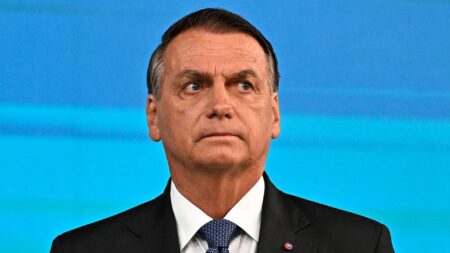German conservatives are increasingly aligning with far-right elements, prompting NGOs to voice concerns over a potential crackdown on civil society. Activists warn that this shift threatens democratic values and undermines civic engagement in the country.
Browsing: governance
As Germany’s political landscape shifts rightward, experts from the Atlantic Council analyze the implications of the recent election results. They delve into how this trend could reshape Germanyﻗs domestic policies and its role in the European Union.
Germany’s next leader faces pressing global challenges, unlike previous administrations that focused inward. As geopolitical tensions rise and the EU’s stability is tested, proactive engagement on the world stage becomes imperative for Germany’s future.
In today’s authoritarian India, finding freedom requires resilience and creativity. Activists harness technology to mobilize grassroots support and challenge oppressive policies. Community solidarity and art as resistance serve as vital tools in the pursuit of liberty.
In “Triumph of Il Duce,” The Times explores Italy’s complex relationship with Mussolini, highlighting how nostalgia for his era persists amidst ongoing debates about fascism, identity, and historical memory in modern Italian society.
Following his election victory, Friedrich Merz faces the challenge of uniting Germany’s fractured political landscape while asserting strong leadership in Europe. Analysts at Chatham House examine whether he can navigate these demanding responsibilities effectively.
Doug Ford has secured re-election as Ontario’s Premier in a contentious vote framed as a battle against the influence of Donald Trump. This victory emphasizes Ford’s appeal amid rising concerns over populism and its impact on provincial policy.
Argentina’s President Javier Milei is grappling with a credibility crisis following allegations of a crypto scam linked to his administration. Critics argue this controversy could undermine Milei’s push for economic reforms and erode public trust in his leadership.
Germany’s recent election signals a significant shift in its political landscape, with major implications for the EU. Key takeaways include a coalition government that emphasizes climate action and social reforms, potentially altering Germany’s leadership role in Europe.
Julius D. ﻗJDﻗ Spain, Sr. was officially sworn in as a member of the Arlington County Board, bringing his extensive experience in community engagement. His role will focus on enhancing local advisory groups and commissions, fostering collaboration and progress.
Argentina’s presidential candidate Javier Milei is under investigation for potential fraud linked to the launch of a cryptocurrency that plummeted shortly after debuting. Critics question the legitimacy of Milei’s support for the coin amid growing concerns over transparency.
In a striking turn of events, a far-right party in Germany has recorded unprecedented support in the recent elections, reflecting shifting political sentiments. Analysts are examining the implications for the nation’s political landscape and societal cohesion.
In a controversial turn of events, the Argentine leader faces backlash following the collapse of a cryptocurrency he actively promoted. Critics argue that the promotion reflects poor judgment, raising concerns about the governmentﻗs role in digital finance.
Germany’s conservative party has secured victory in the latest elections, while the far-right Alternative for Germany (AfD) has surged to second place, according to exit polls. This shift signals a significant change in the nation’s political landscape.
Polls have opened in Germany for a pivotal election that is being closely monitored by European leaders and the US. With issues like economic stability and climate policy at stake, the outcome could significantly influence the continent’s future trajectory.
Argentina’s political landscape is heating up as opposition leaders threaten an impeachment trial against President Javier Milei. This comes after Milei’s controversial promotion of a new cryptocurrency, raising concerns over fiscal stability and governance.
Former Brazilian President Jair Bolsonaro has been formally charged with attempting to orchestrate a coup following his electoral defeat in 2022. The charges stem from allegations of inciting violence and undermining Brazil’s democratic processes during his presidency.
Argentina’s president faces serious accusations of fraud following a catastrophic collapse in the country’s cryptocurrency market. As investors demand accountability, the political fallout raises questions about regulatory oversight and financial governance.


















